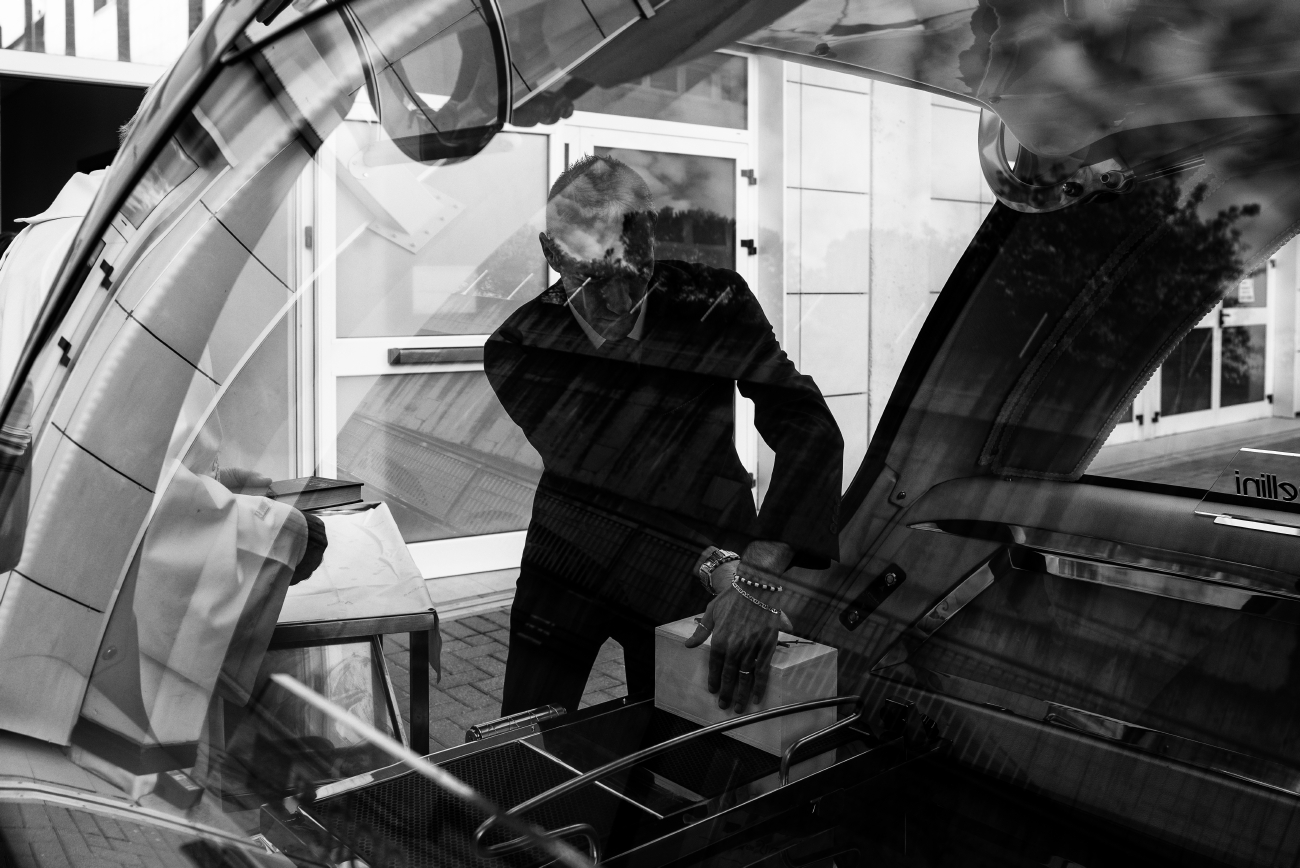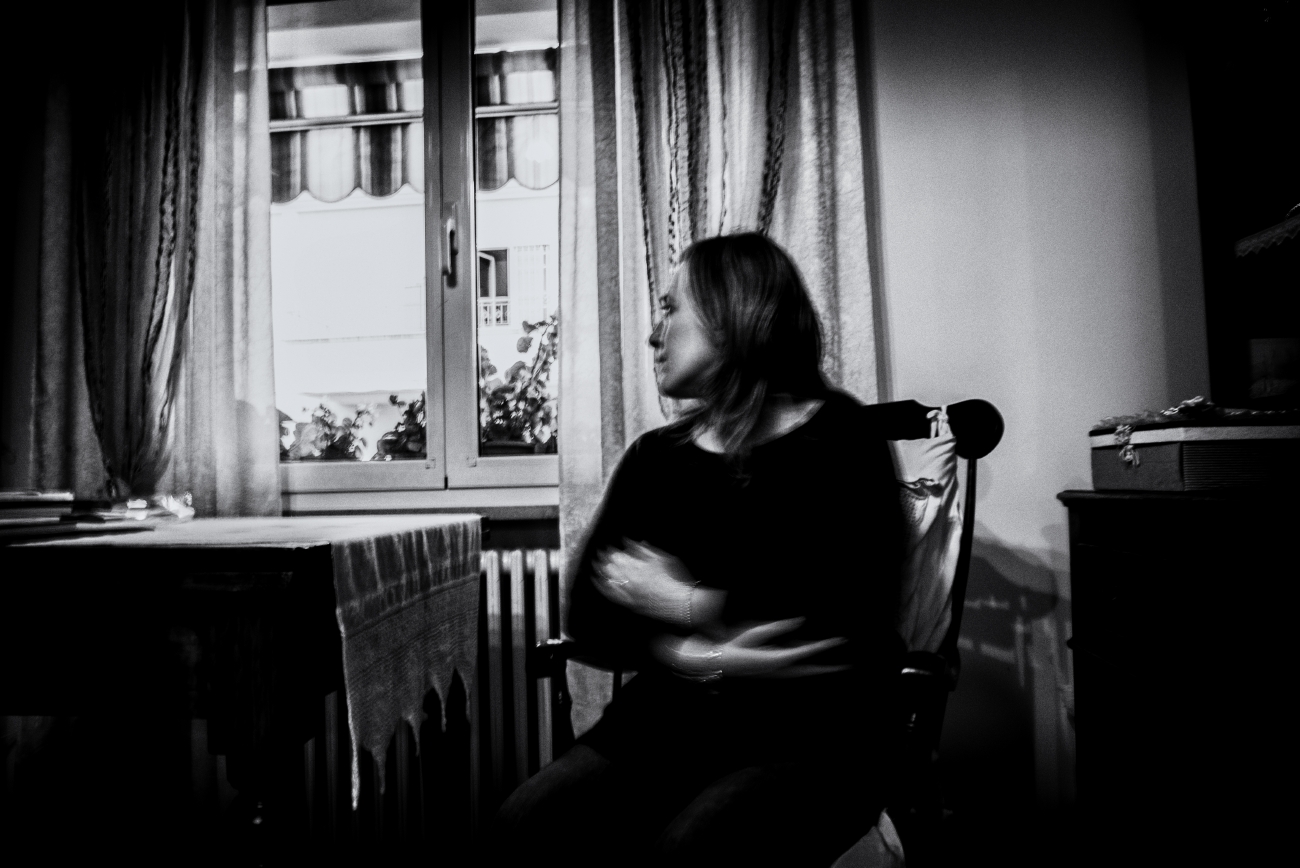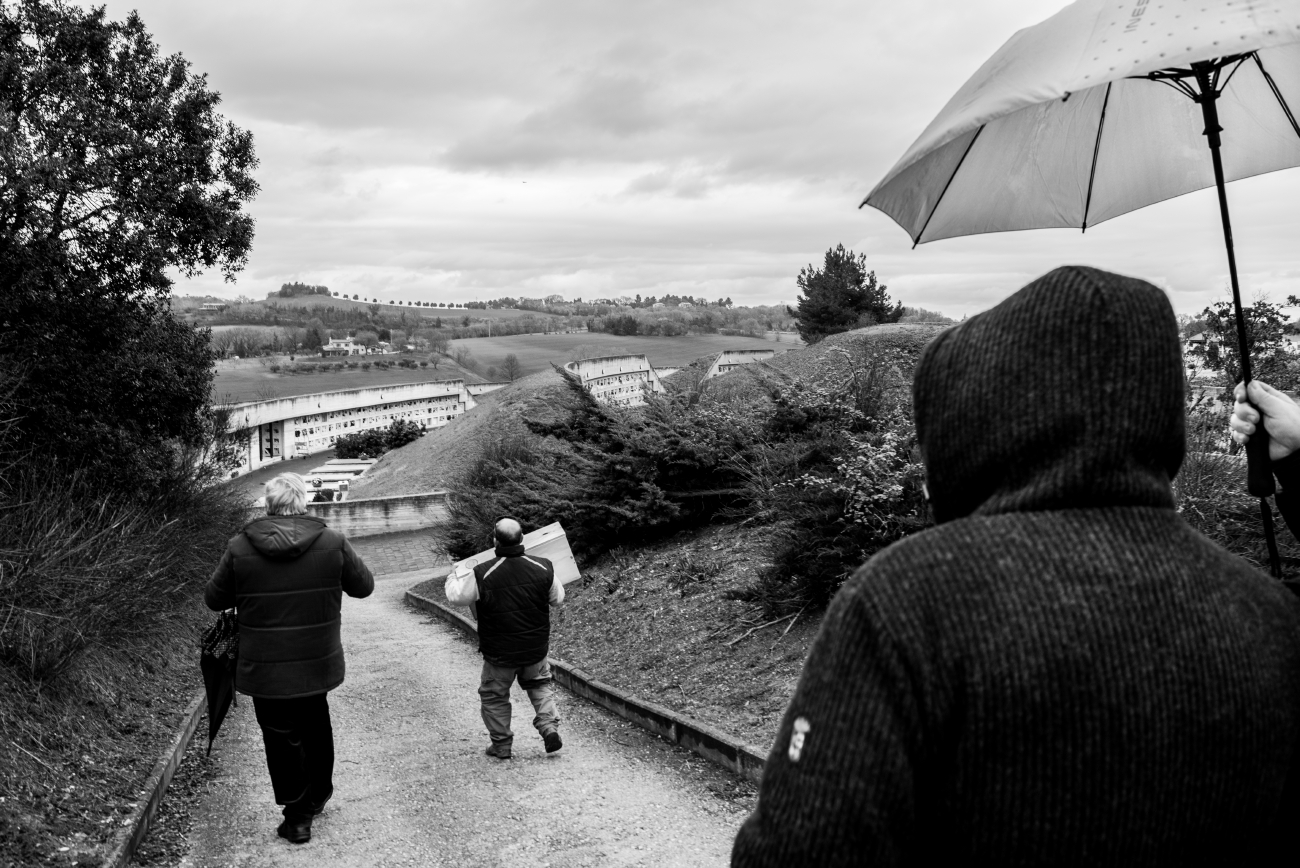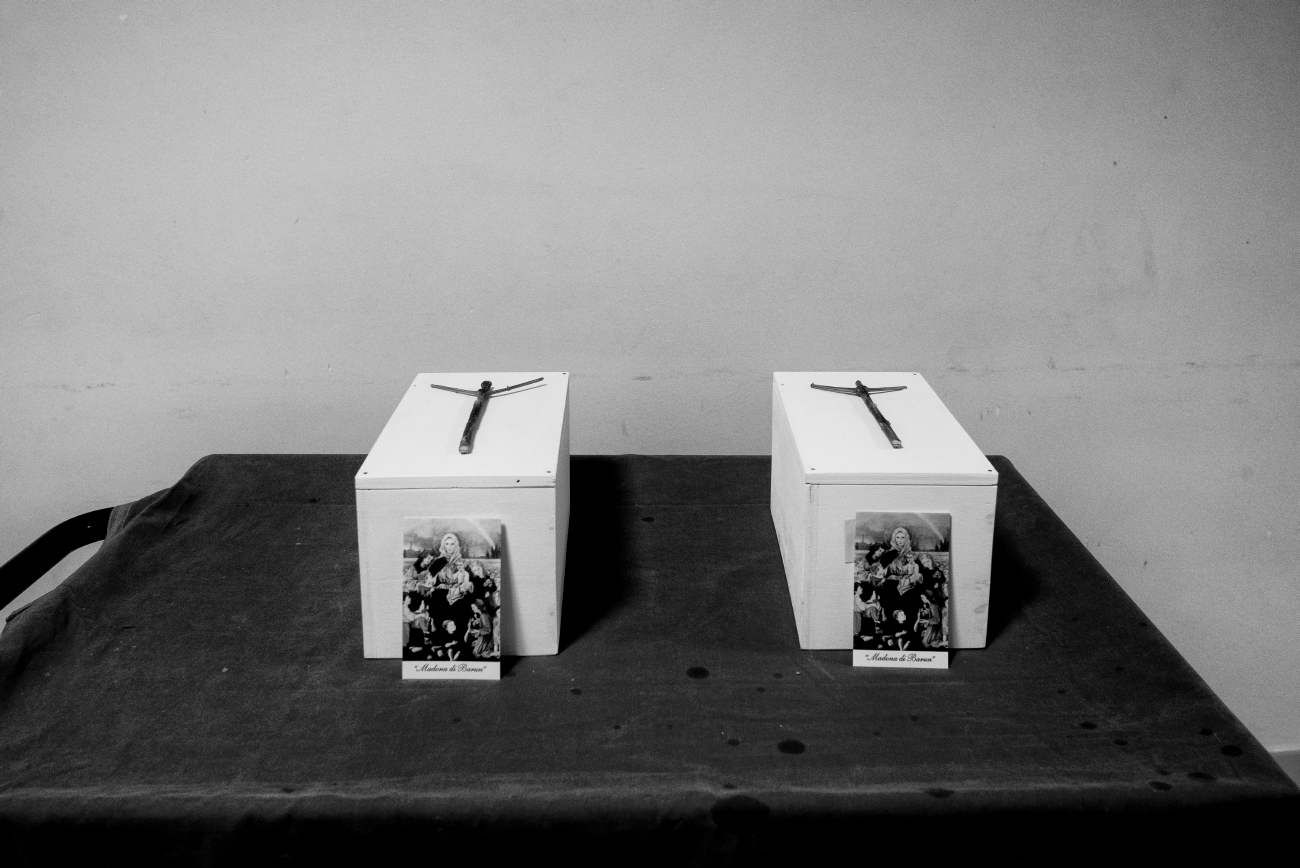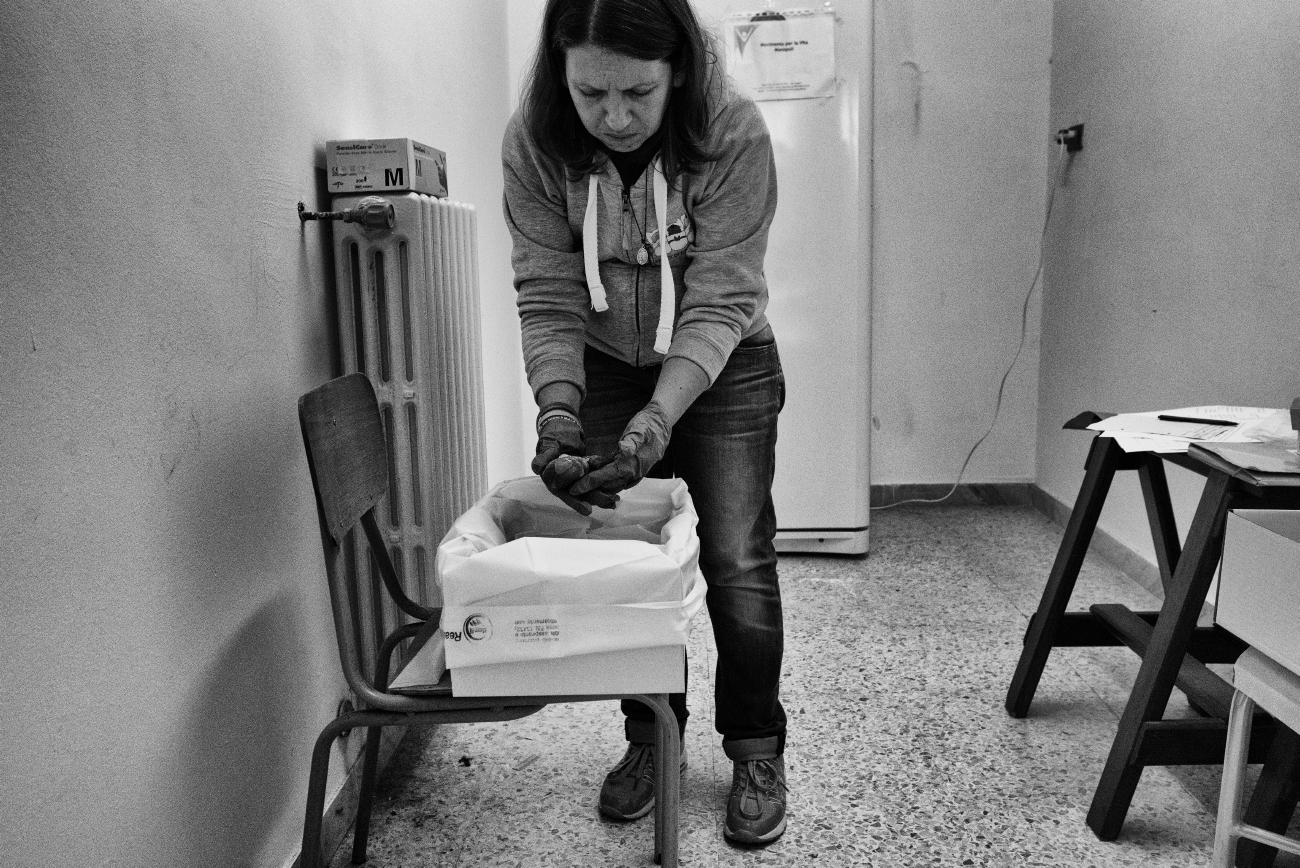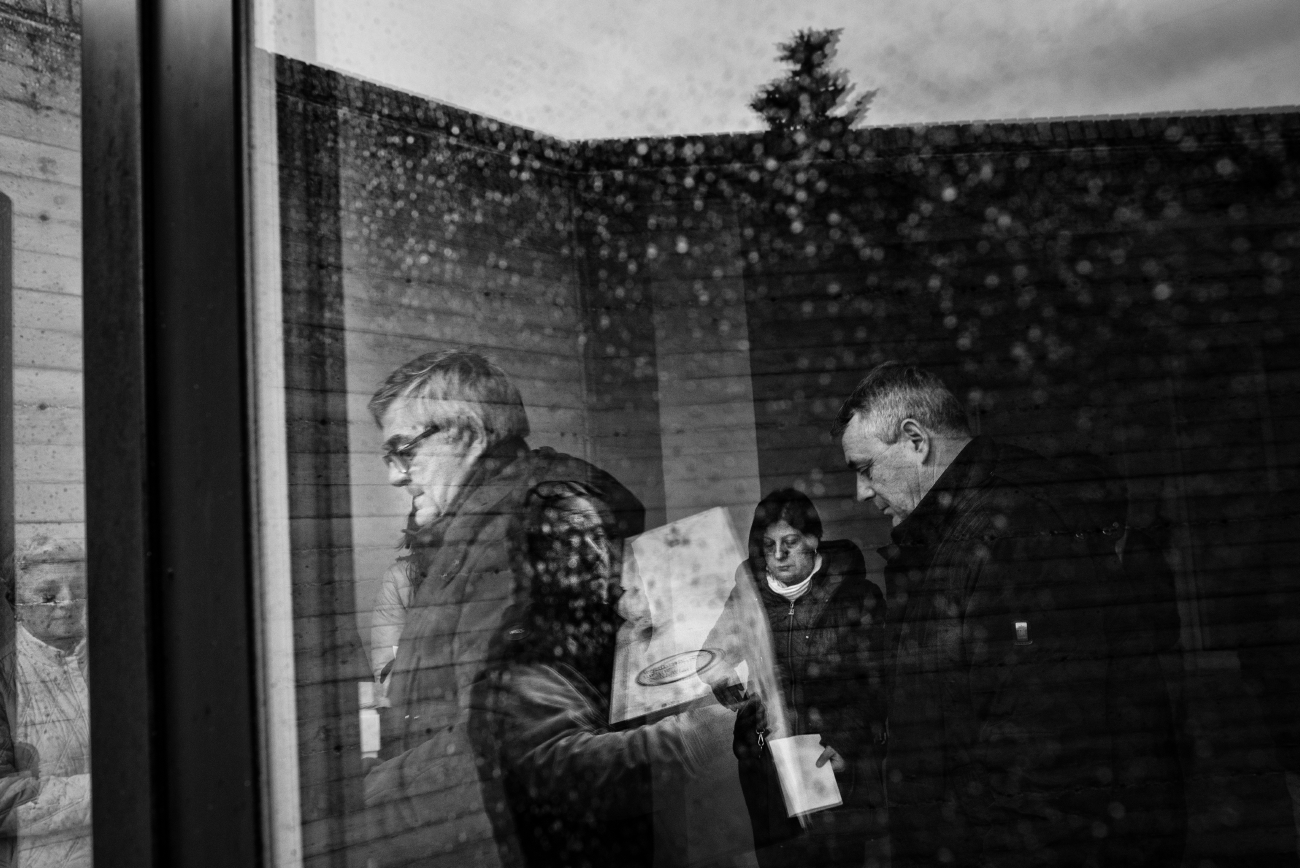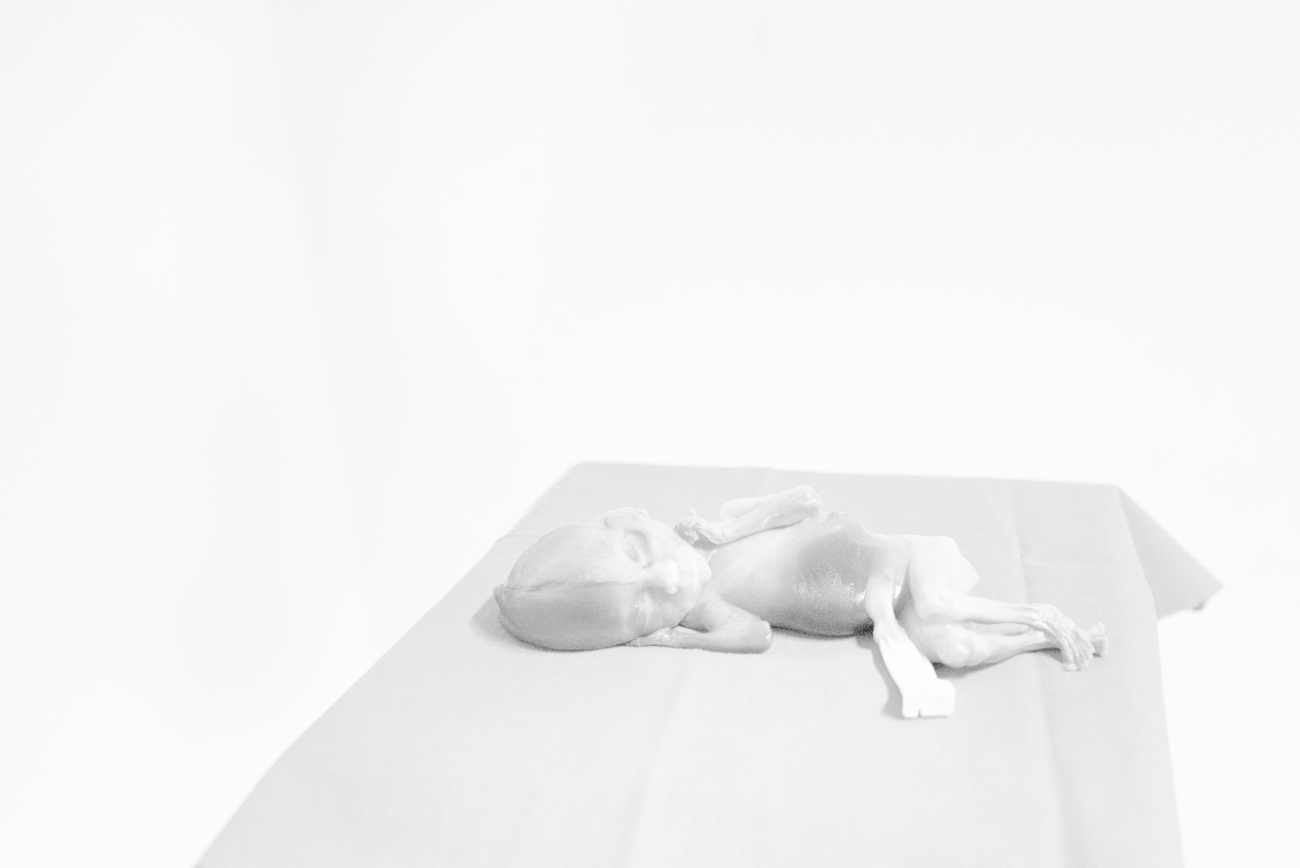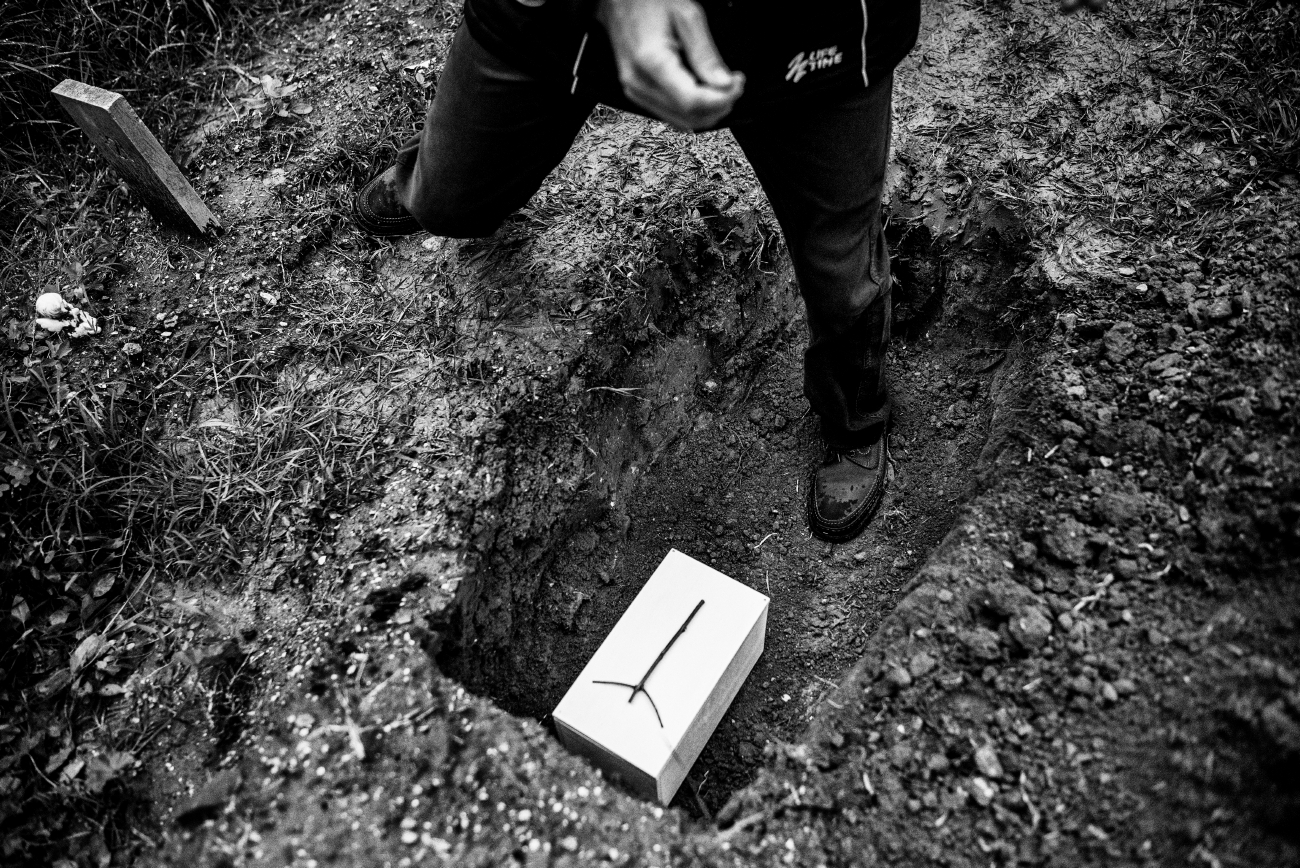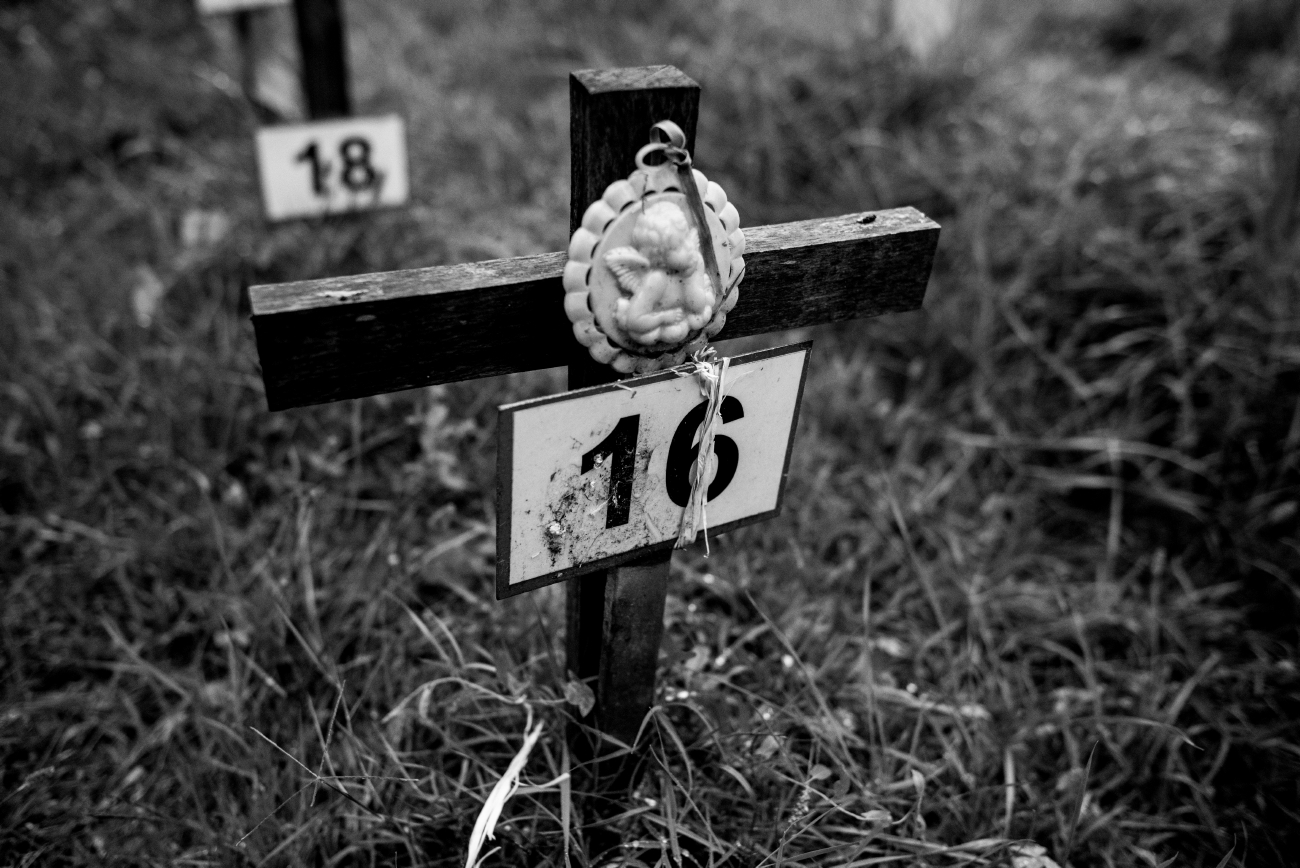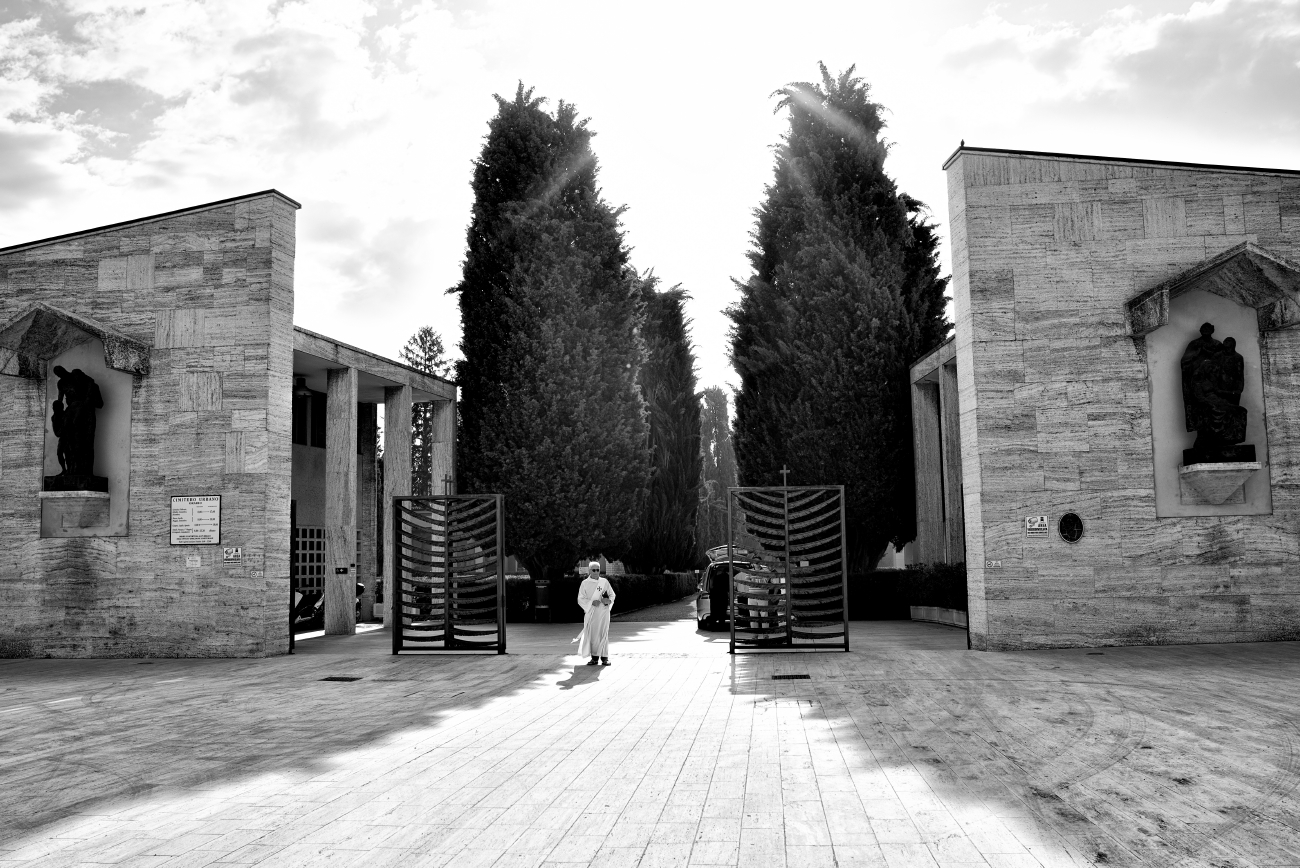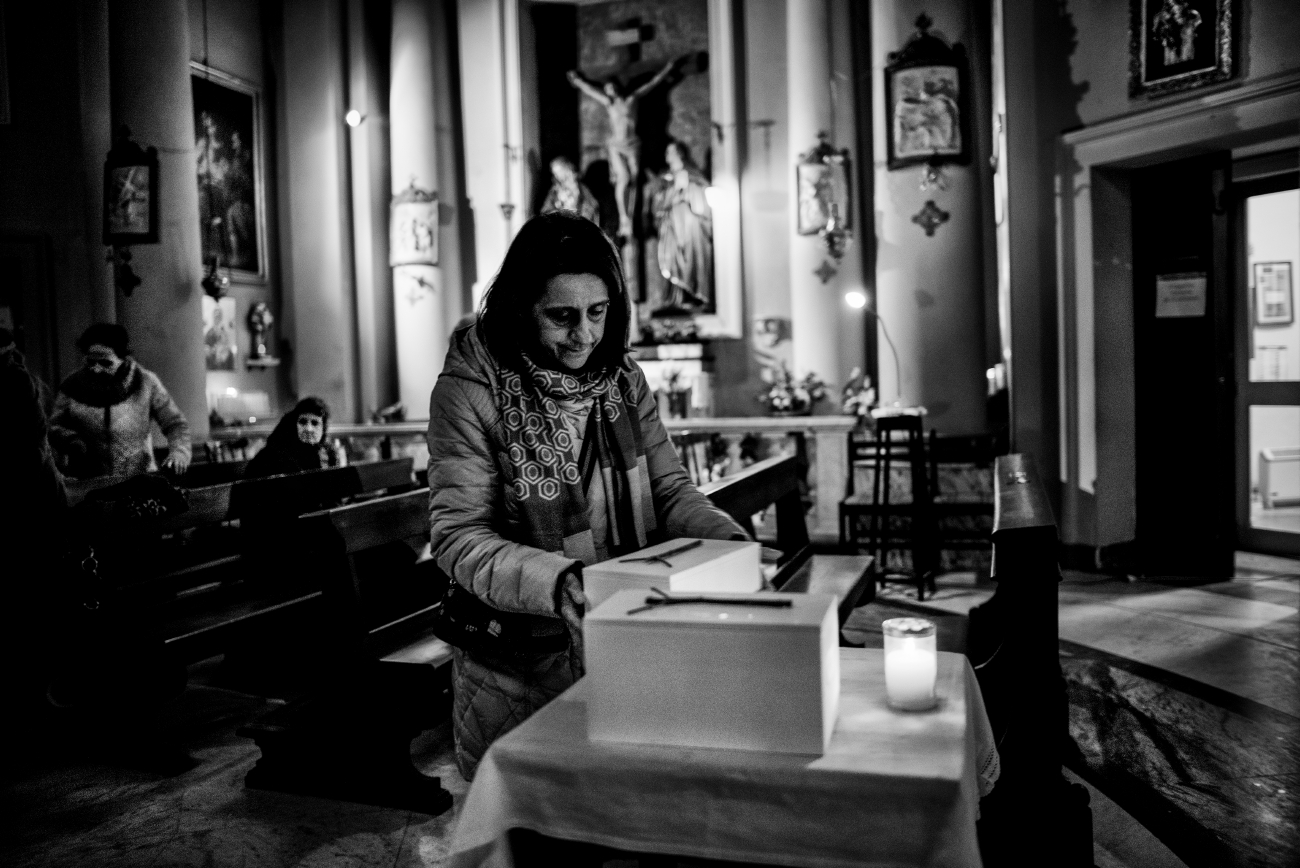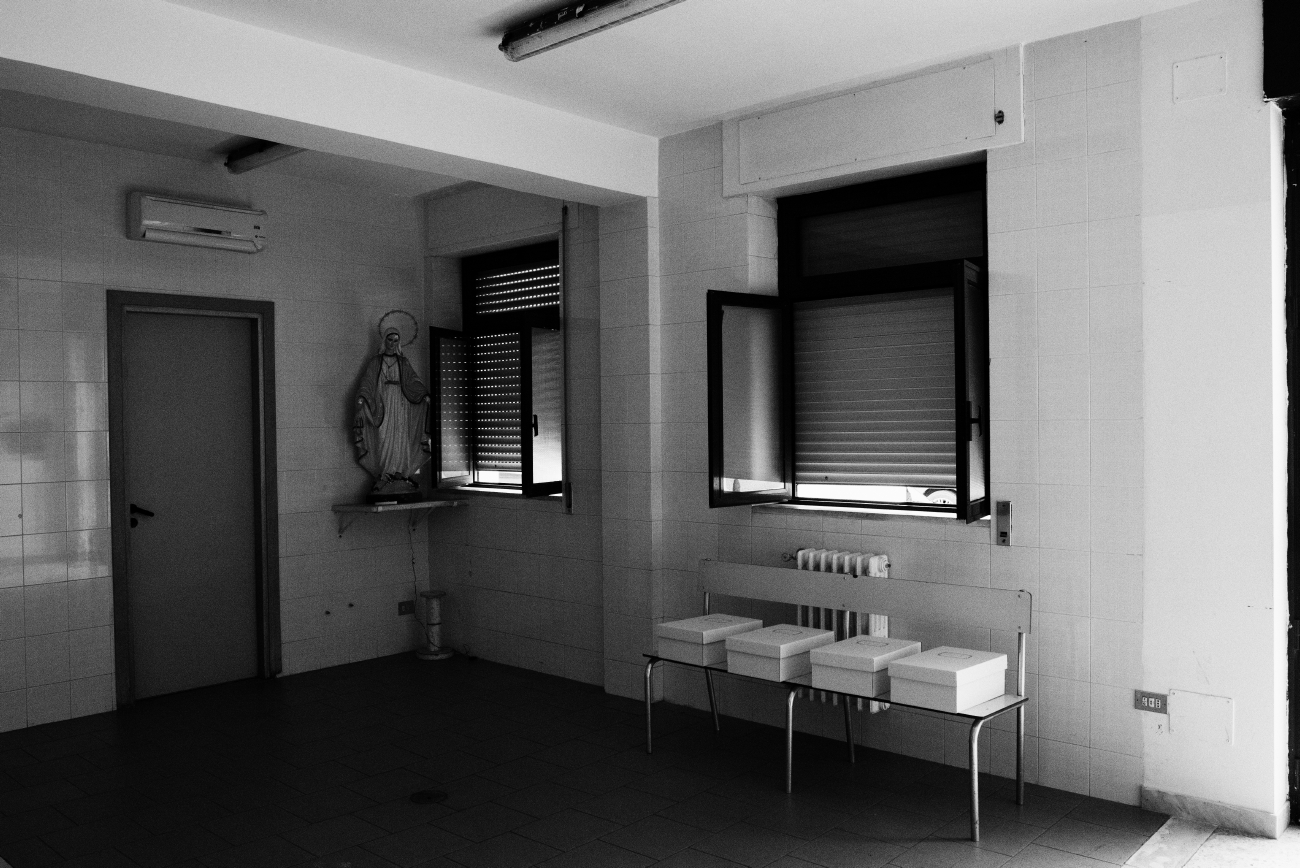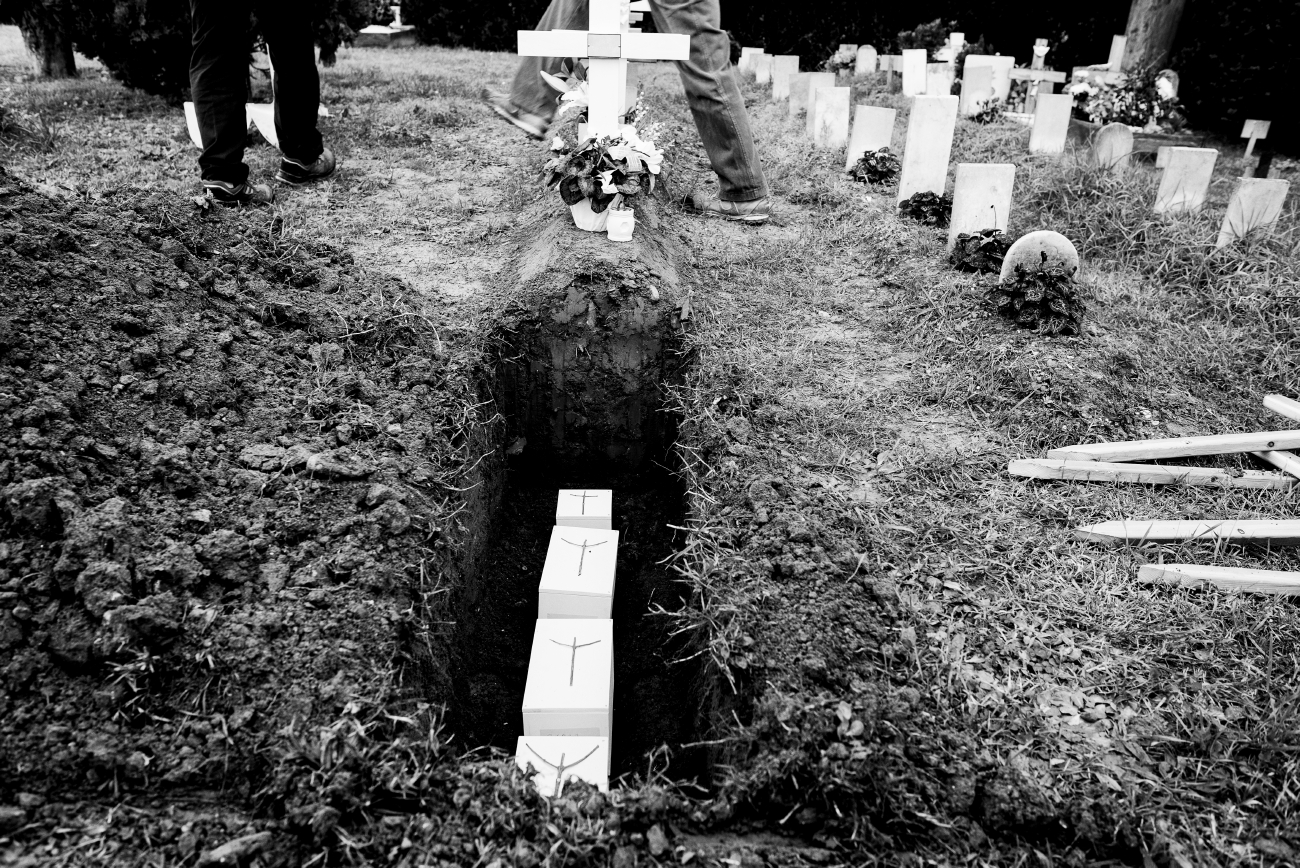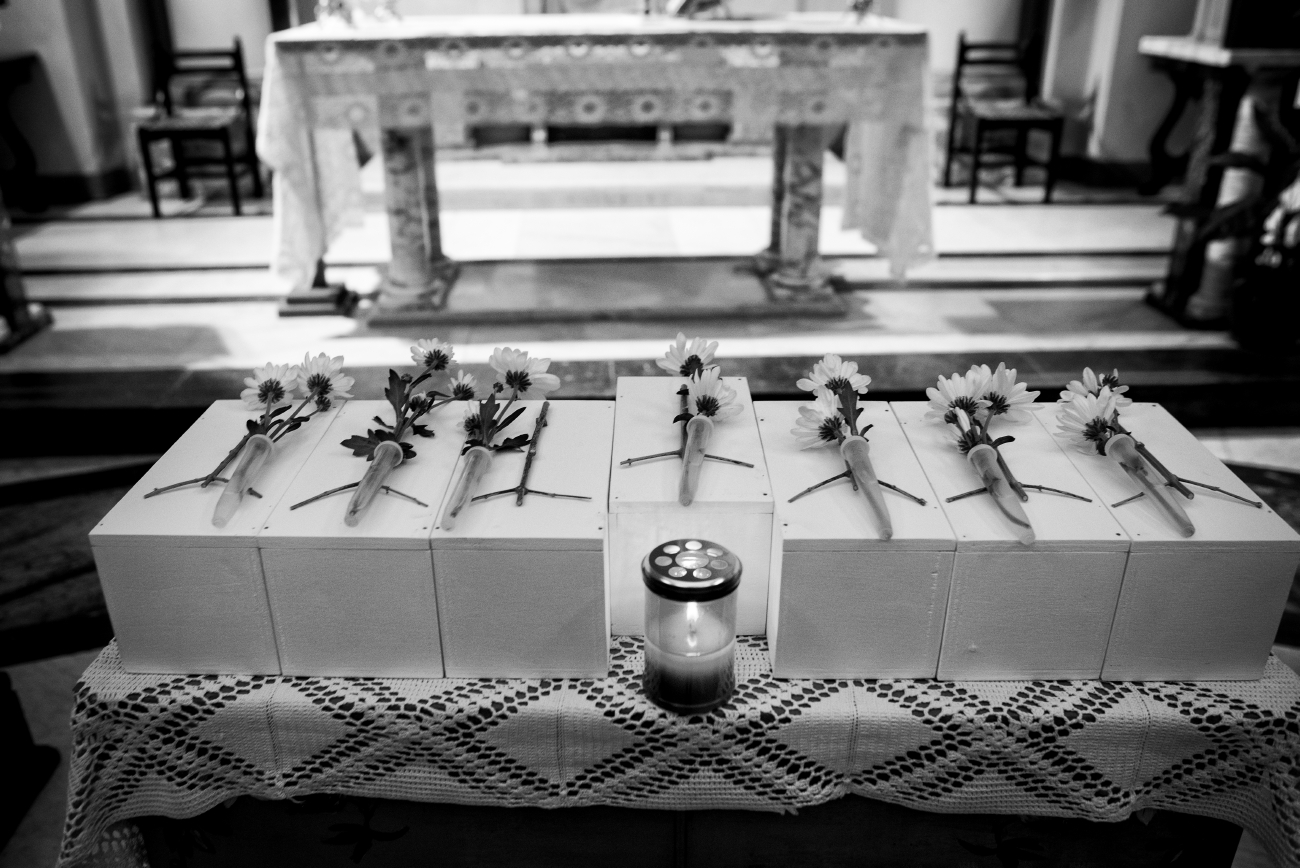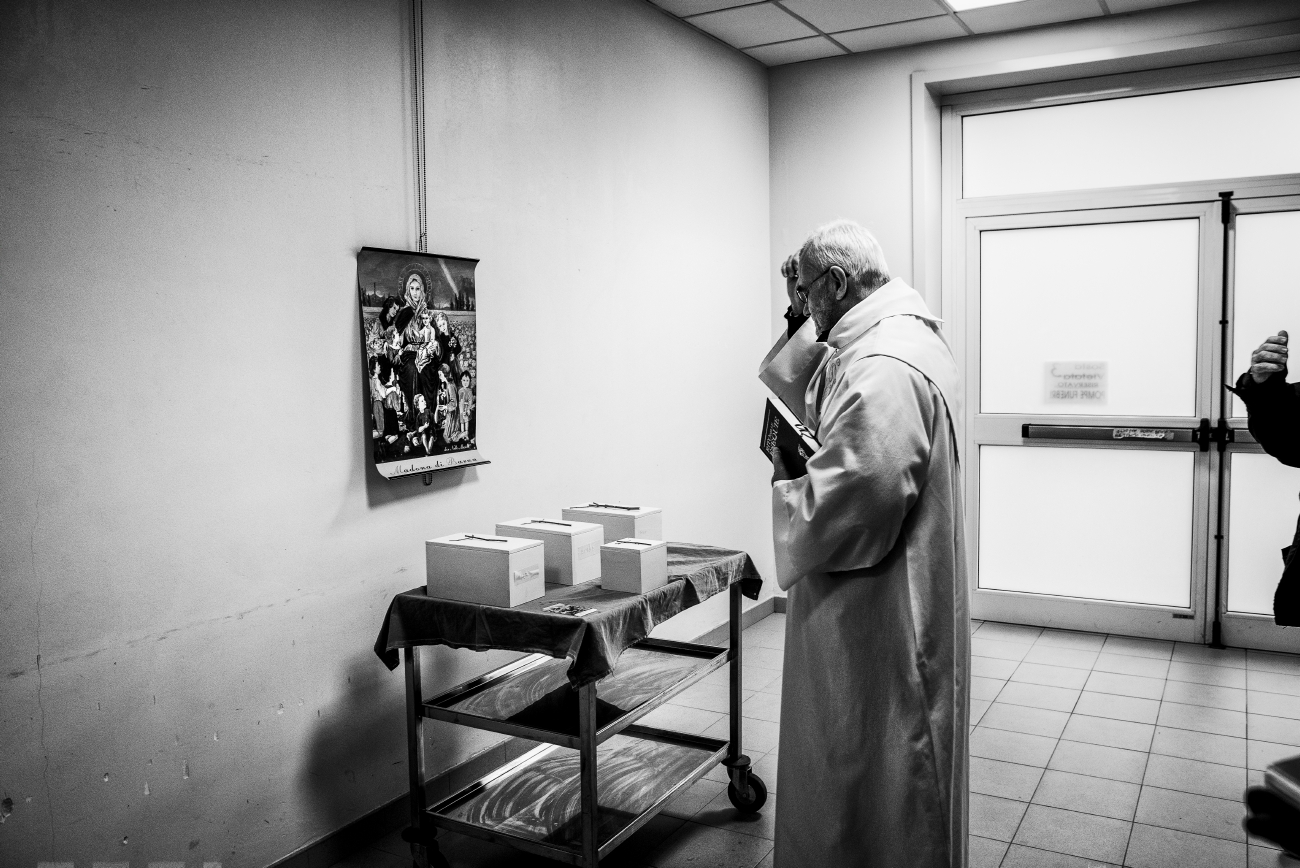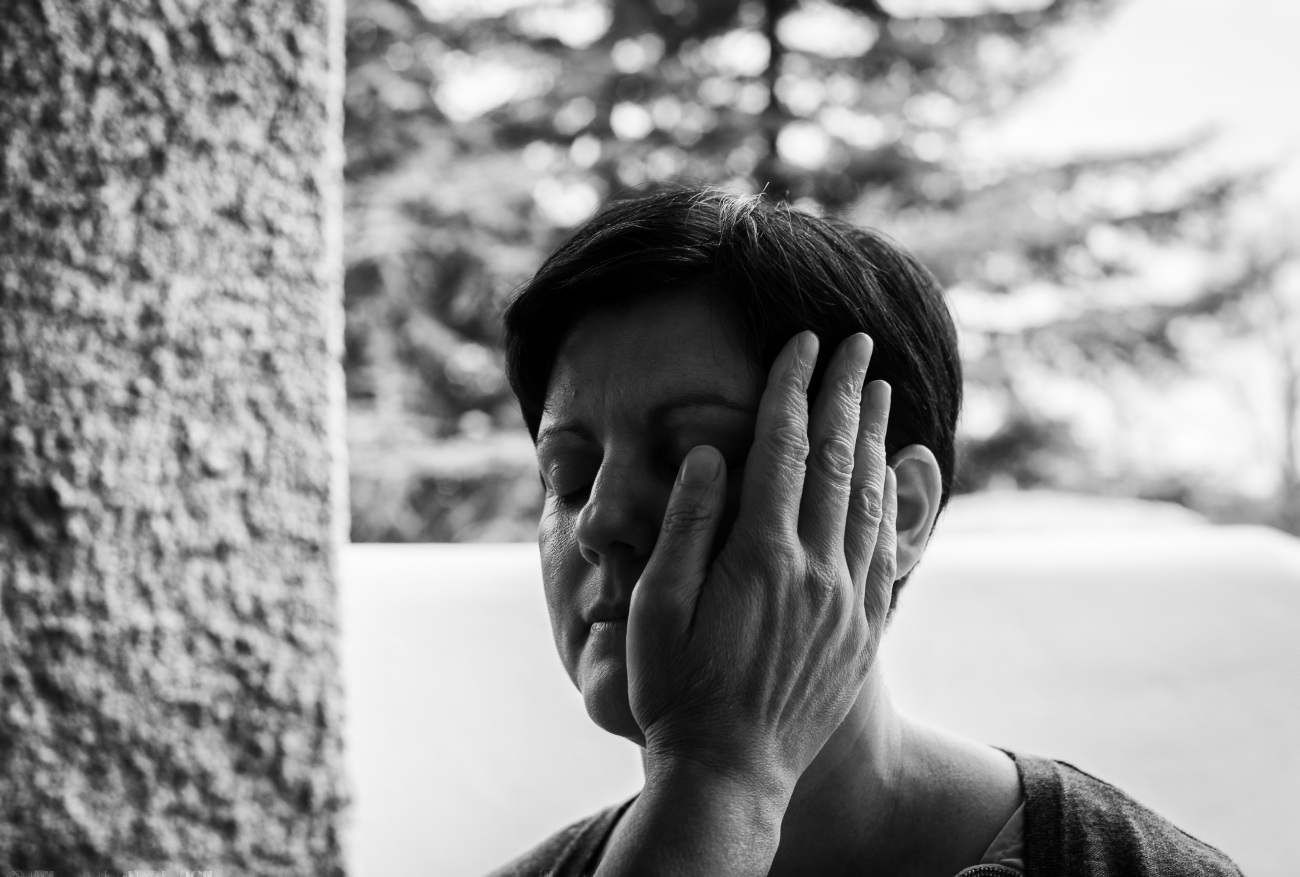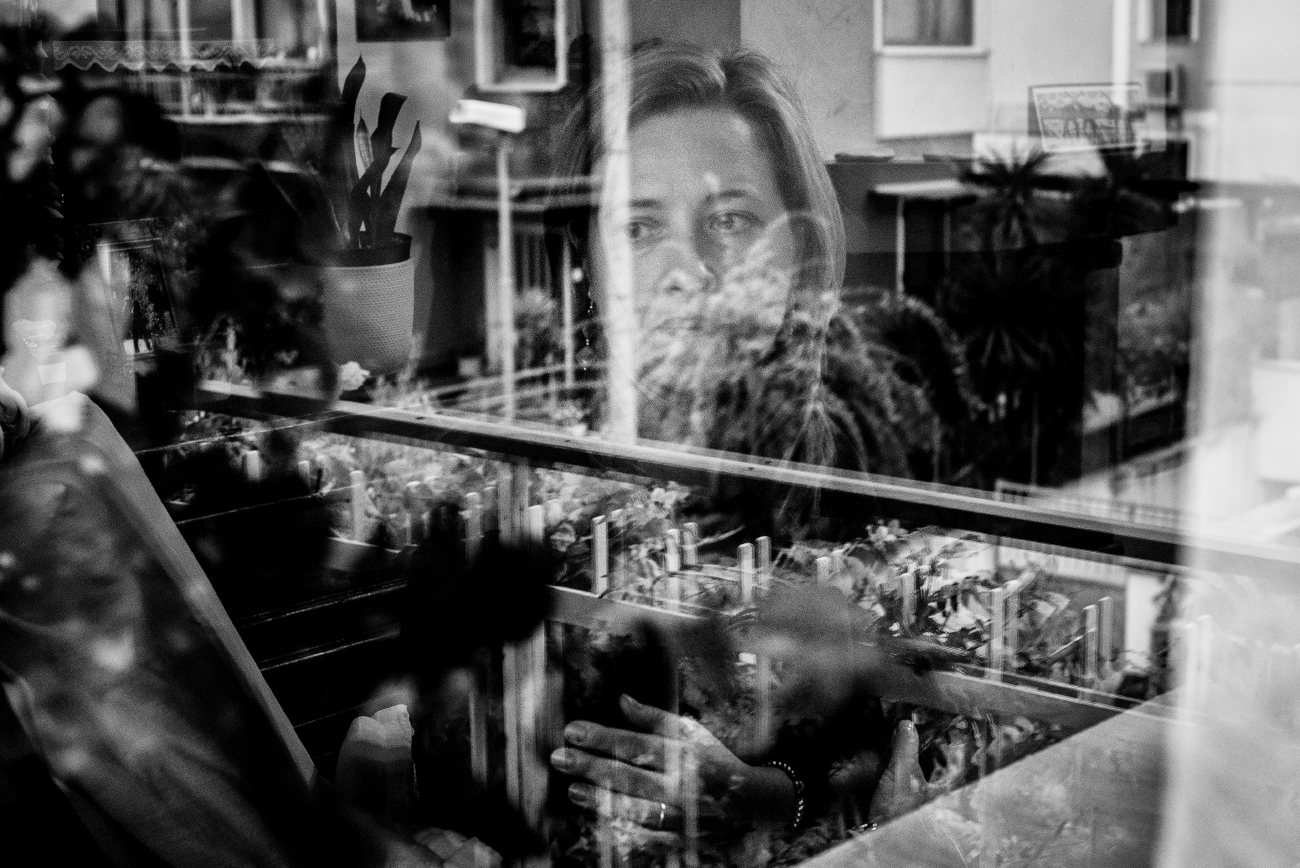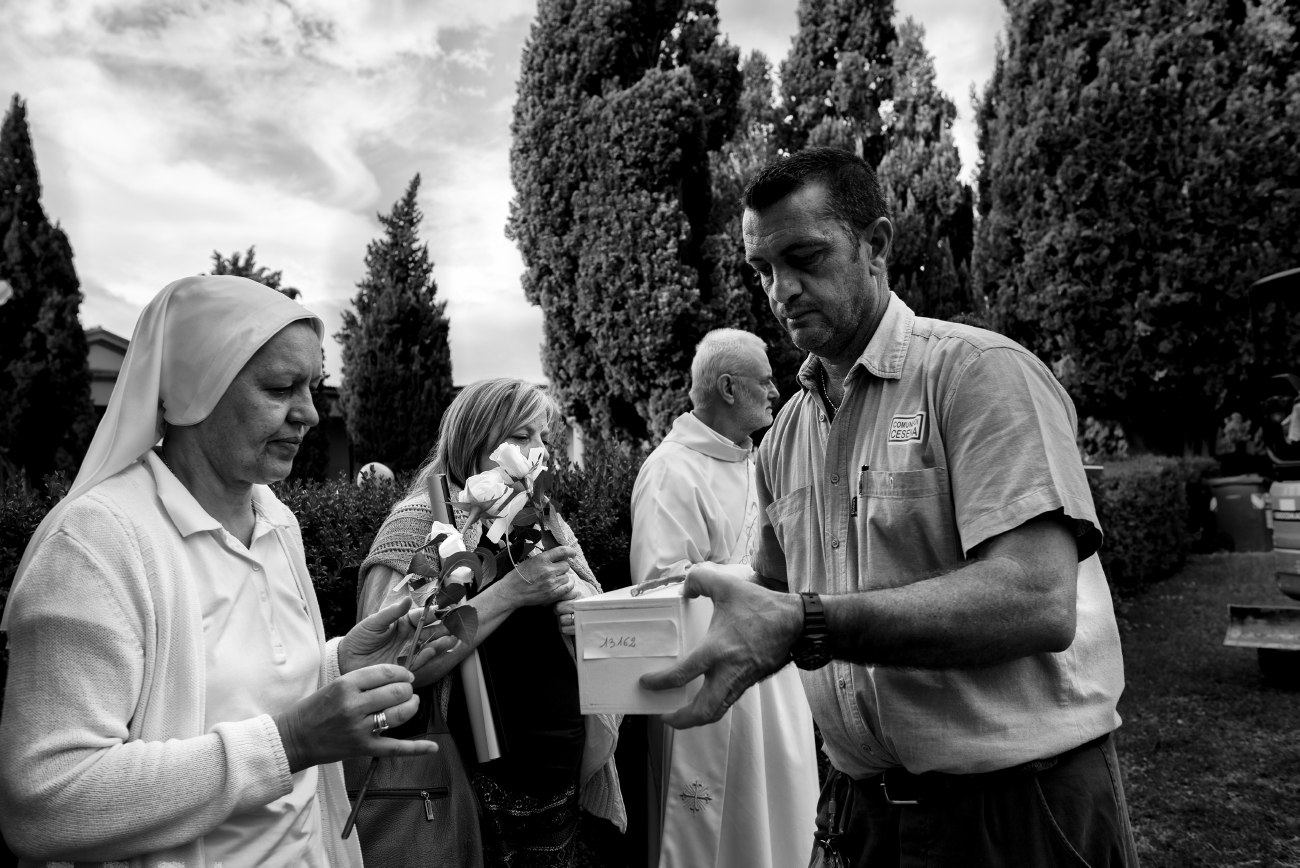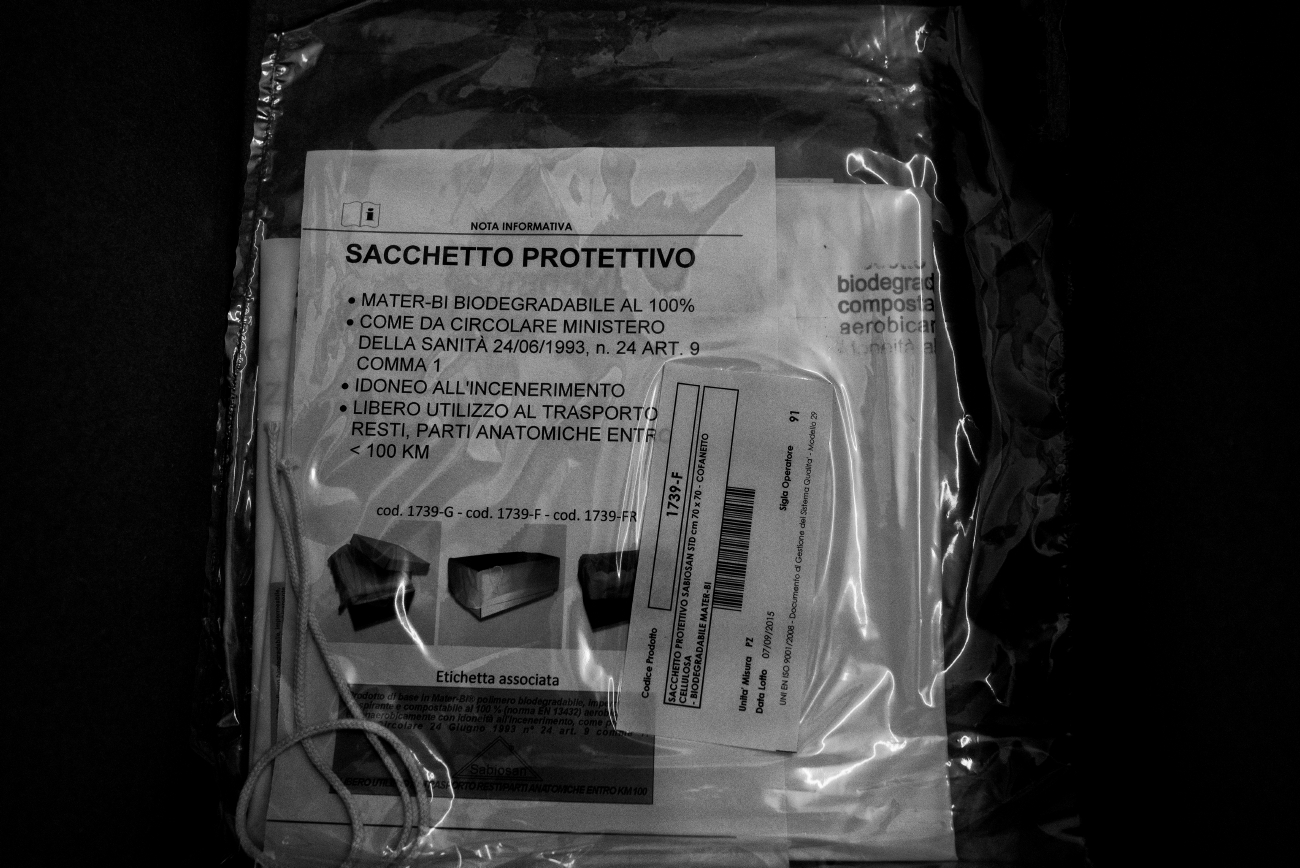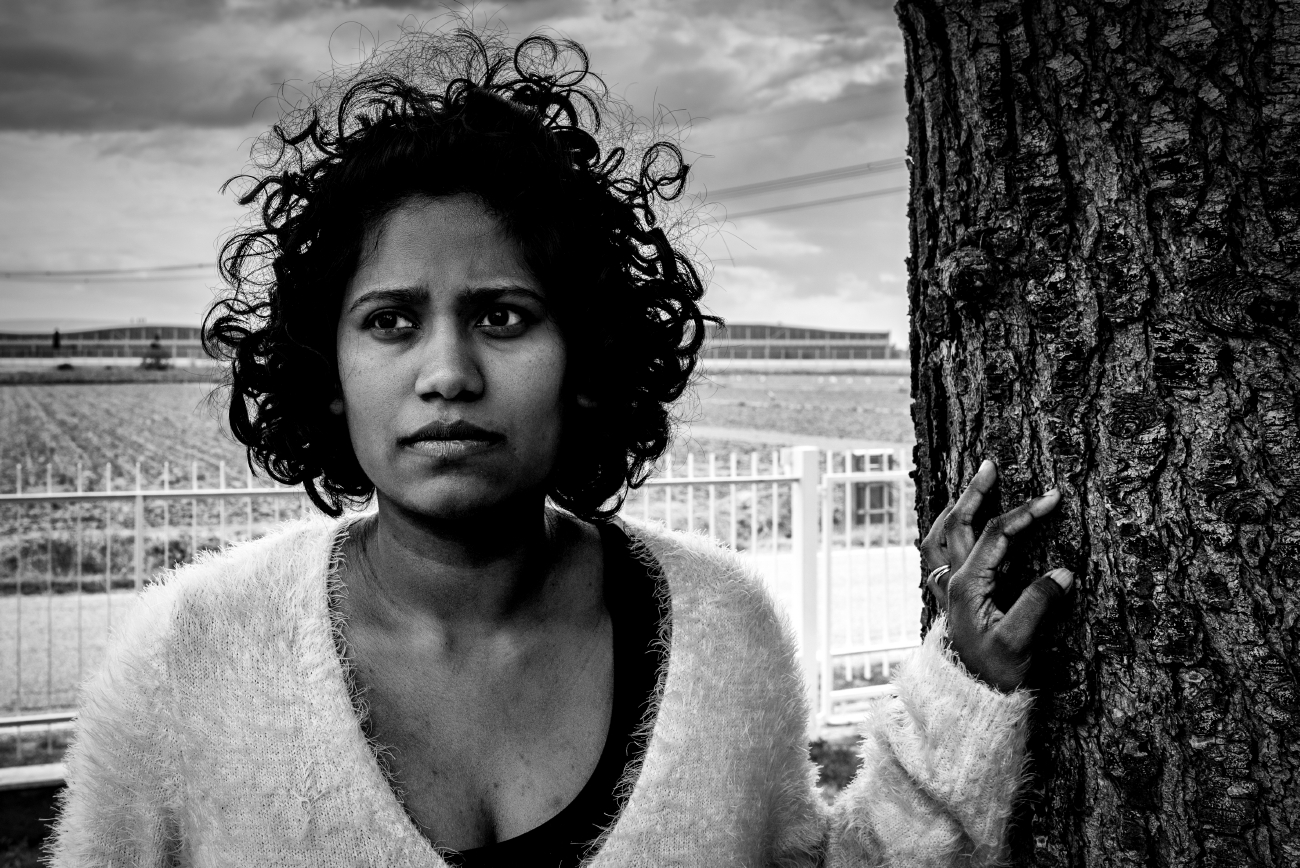The Unborn
It is actually possible to hold funerals for foetuses. And anti-abortion organisations are doing just that, often without the knowledge of the parents
Photo by Maria Elena Di Giovanni
Early in the morning Italian cemeteries are desolate places. Funerals are not usually held at dawn but today an exception is being made: people enter in silence, holding to their chests white boxes that, after a quick prayer, are laid sideways in a specially dug grave. The coffins are covered with fresh earth and a cross is laid to indicate the site. There are no names written on those crosses, only hospital codes that relate to surgical operations, usually abortions. This is a grave for foetuses that were never born.
It happens at least once a month, in many parts of Italy. Private ceremonies, few indiscrete eyes and almost never those of the parents: burying these tiny remains, which are stored until that moment in the hospital morgue, are volunteers from catholic anti-abortion associations. The Italian law on abortion, n.194 of 1978, states that the parents, within 24 hours of the operation, are entitled to request from the local health authority that the foetus is buried. This is just a very short time window and parents are often not even aware of this possibility.
Once the 24 hours have passed, the organic material becomes the property of the local health authority that must see to its disposal, or in some cases, pass it on to associations with which the hospital has special agreements, also without the consent of the parents. This is possible because of gaps in the law governing the interruption of pregnancies (in 2018 in Italy more than 76 thousand abortions took place), which are enabling a practice that is completely unknown to most. This practice, in fact, involves a different treatment for some of those foetuses (aborted prior to the 22nd week of gestation) otherwise destined for the incinerator together with medical waste and non-recognizable anatomical matter. “With this act we entrust your child in to the arms of the loving Lord and Father,” reads the form for the request for burial, “to honour them and give them the mercy that they deserve.”
(The captions for the photos don’t give the precise locations out of respect for the request for confidentiality made by the associations involved)
(2016-2019)

